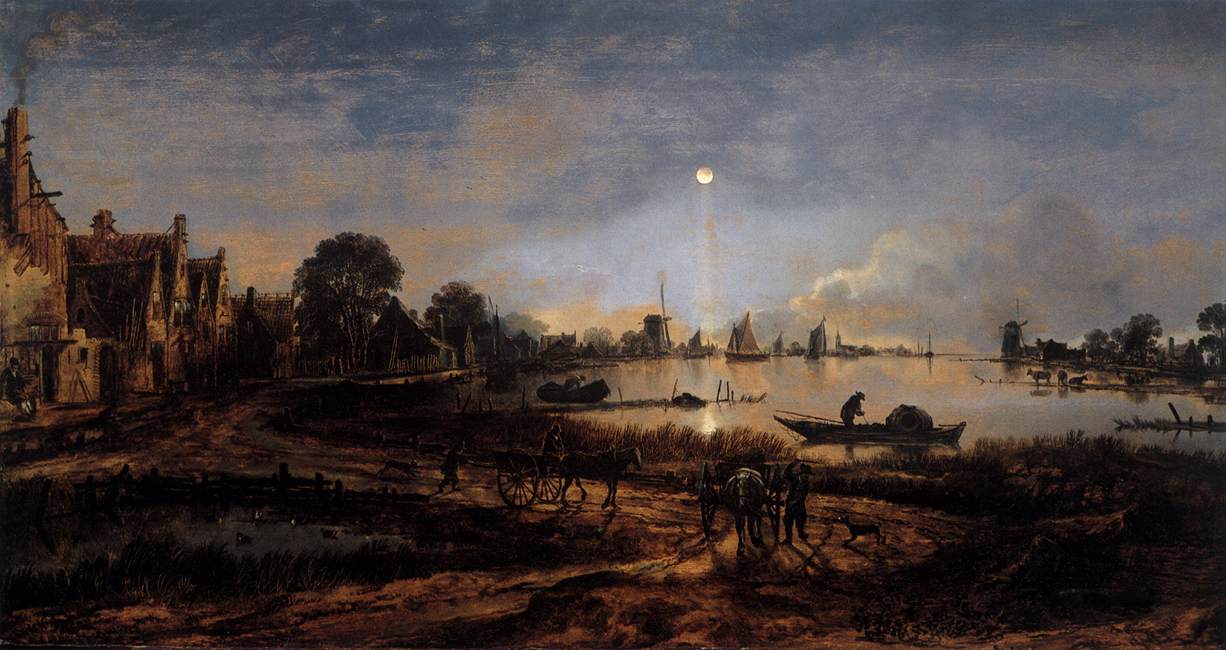Description
The painting "River View by Moonlight" by Dutch artist Aert Van Der Neer is a 17th-century masterpiece that has captivated art lovers for centuries. This painting is a perfect example of the Baroque style of art, characterized by rich detail, emotional intensity, and dramatization of light and shadow.
The composition of the painting is impressive. The view of the river flowing towards the horizon, surrounded by trees and bushes, creates a sense of depth and perspective. The moonlight illuminates the scene, creating a mysterious and romantic atmosphere. Van Der Neer's technique for creating the illusion of light is impressive, especially in the way the moonlight reflects off the water.
Color is also an interesting aspect of this painting. Van Der Neer's color palette is rich and varied, with dark and warm tones creating a feeling of warmth and comfort. The artist uses shades of blue, green and brown to represent nature, and lighter, brighter tones for the moon and the reflection in the water.
The story behind this painting is also fascinating. Although it is not known exactly when it was painted, it is believed to have been created in the 1660s. The painting has passed through various hands over the centuries and has been part of several important art collections. In 2015, it was auctioned at Sotheby's for more than $2 million.
There are some little-known aspects of this painting that are also interesting. For example, it is believed that Van Der Neer was not only a painter, but also a musician and a poet. It is said that he liked to play the violin and compose poems while painting. It is also known that he was a great admirer of nature and that he spent a lot of time in the countryside, observing the landscapes and the changes in light.
In short, "River View by Moonlight" is an impressive painting that represents the talent and skill of Aert Van Der Neer. Its baroque artistic style, its impressive composition, its use of color and its fascinating history make it a truly unique and unforgettable work of art.

